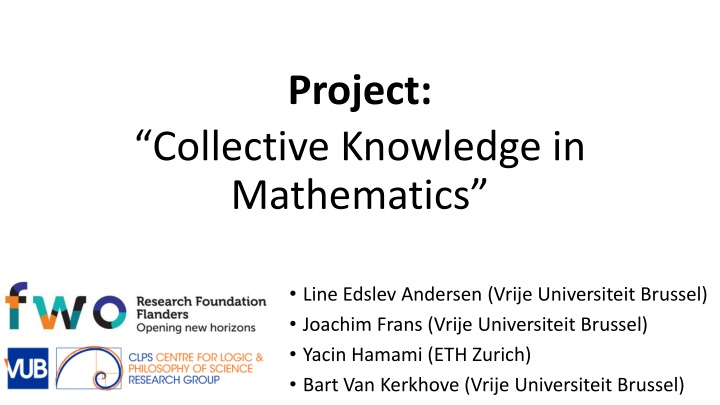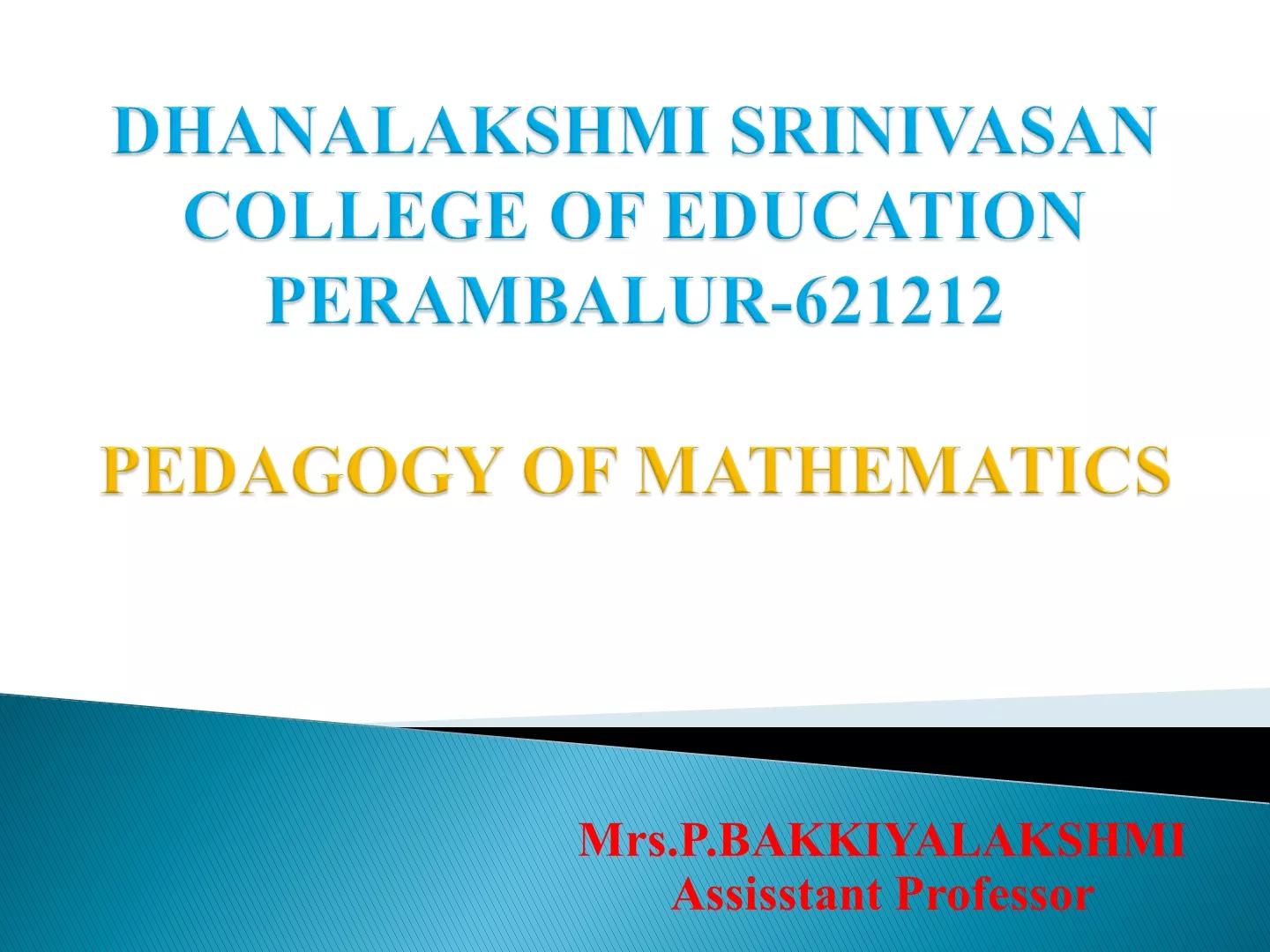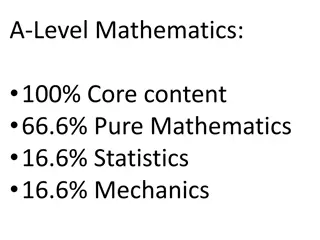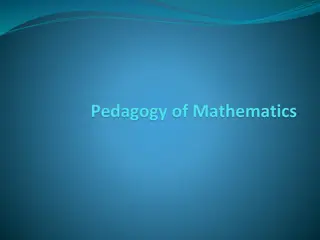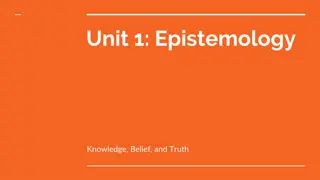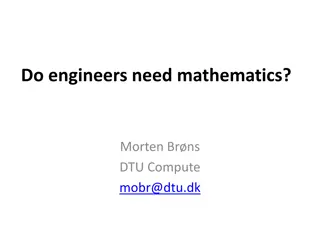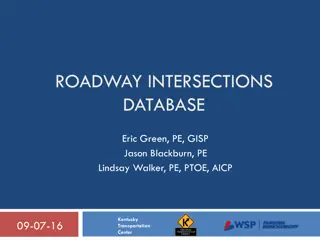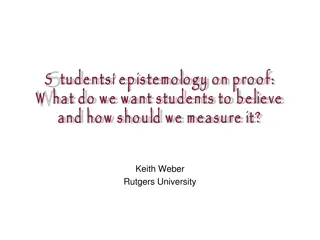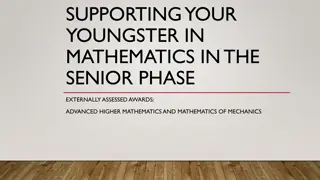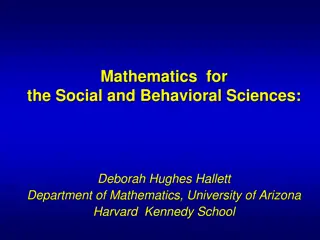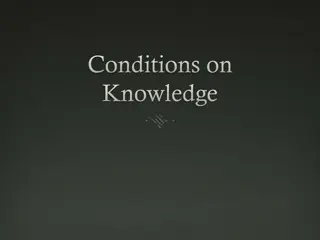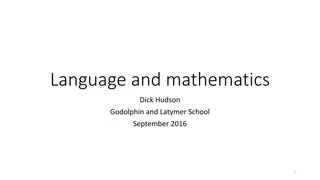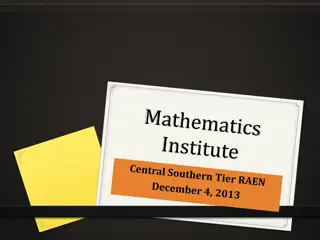Intersection of Social Epistemology and Mathematics
Delve into the intertwining realms of social epistemology and mathematics, examining the collaborative knowledge creation within the mathematical community. This work emphasizes the social dimensions influencing mathematical practices and the epistemic norms shaping reliable mathematical knowledge.
Download Presentation

Please find below an Image/Link to download the presentation.
The content on the website is provided AS IS for your information and personal use only. It may not be sold, licensed, or shared on other websites without obtaining consent from the author.If you encounter any issues during the download, it is possible that the publisher has removed the file from their server.
You are allowed to download the files provided on this website for personal or commercial use, subject to the condition that they are used lawfully. All files are the property of their respective owners.
The content on the website is provided AS IS for your information and personal use only. It may not be sold, licensed, or shared on other websites without obtaining consent from the author.
E N D
Presentation Transcript
Project: Collective Knowledge in Mathematics Line Edslev Andersen (Vrije Universiteit Brussel) Joachim Frans (Vrije Universiteit Brussel) Yacin Hamami (ETH Zurich) Bart Van Kerkhove (Vrije Universiteit Brussel)
Silvia De Toffoli, 2023, The Epistemological Subject(s) of Mathematics, Sect. 2.4: Putting at the center of epistemological inquiries non-ideal subjects embedded in a specific mathematical practice obliges us to look at the social dimension of mathematics. In point of fact, contrary to the romantic image of the mathematician working in isolation, most members of a mathematical practice interact systematically with each other and with the broader mathematical community. It is for this reason that the epistemic norms at play in mathematics present a social dimension.
A. What does it mean to say that the mathematical community knows that p? B. What does our answer to A tell us about the mathematical community as a social epistemic subject? C. What do the answers to A and B tell us about the reliability of mathematical knowledge?
Two points of departure, two intended audiences We aim to: use the literature on social epistemology to contribute to the philosophy of mathematics contribute to the literature on social epistemology by doing philosophy of mathematics.
social epistemology philosophy of mathematics Hanne Andersen Henrik Kragh S rensen
social epistemology philosophy of mathematics Hanne Andersen Henrik Kragh S rensen
A. What does it mean to say that the mathematical community knows that p? B. What does our answer to A tell us about the mathematical community as a social epistemic subject? C. What do the answers to A and B tell us about the reliability of mathematical knowledge?
Common view in social epistemology: Group knowledge can be accounted for in terms of the mental states of the individual group members.
Common view in social epistemology: Group knowledge can be accounted for in terms of the mental states of the individual group members.
Common view in social epistemology: Group knowledge can be accounted for in terms of the mental states of the individual group members. Our question: Can the common view be maintained in the face of mathematics?
